Roundtable on Russia–China Cooperation in Antimonopoly Policy Held at HSE University
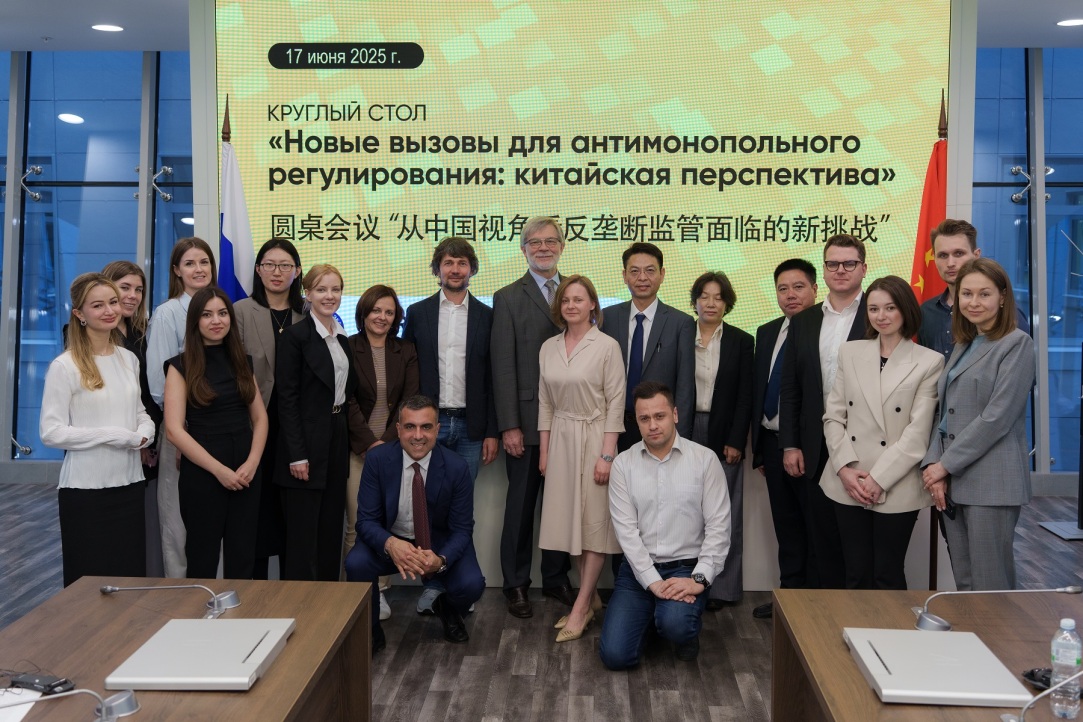
HSE University hosted a roundtable titled ‘New Challenges for Antitrust Regulation: The Chinese Perspective.’ The event was organised by the International BRICS Competition Law and Policy Centre (BRICS Centre). Special guests included Chinese colleagues from the Competition Policy and Assessment Centre (CPAC) of the State Administration for Market Regulation of the People’s Republic of China (SAMR). Last year, the BRICS Centre and CPAC SAMR signed an agreement on strategic cooperation.
The meeting also brought together representatives of the Federal Antimonopoly Service of Russia (FAS), the Eurasian Economic Commission, as well as staff from the BRICS Centre and the Faculty of Law. The discussion was moderated by Alexey Ivanov, Director of the BRICS Centre and Professor at the HSE Faculty of Law.
He recalled that last year the BRICS Centre developed a project for an international platform on fair competition, which received support from antitrust authorities across the BRICS countries. The initiative was endorsed by Vladimir Putin at the BRICS Summit in Kazan in October last year, and it now stands as a key priority for the BRICS Centre in the context of multilateral cooperation on competition. Alexey Ivanov noted: ‘We hope the Competition Policy and Assessment Centre will become a key partner in the development of this platform.’
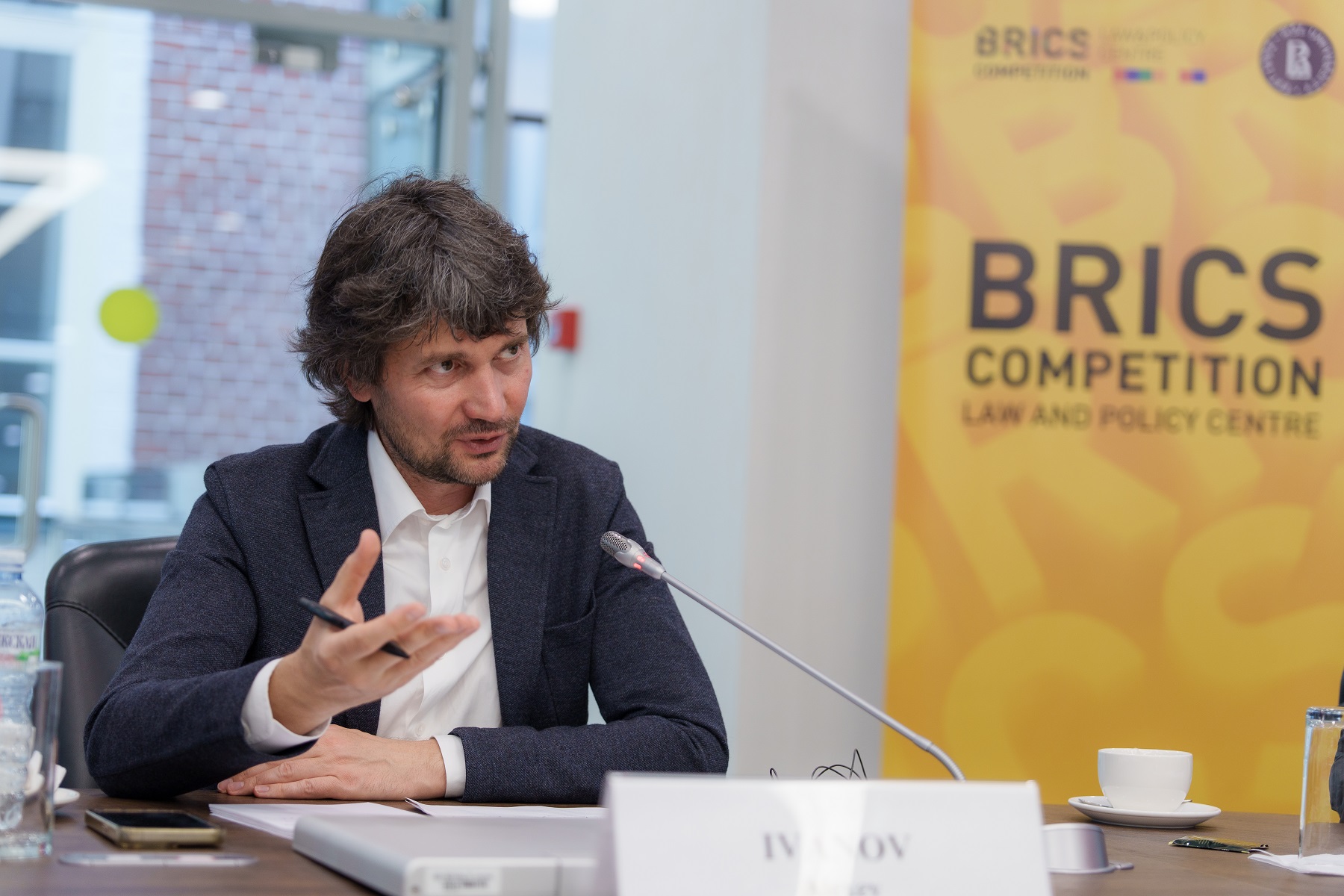
The platform is intended to serve as a foundation for harmonising national policies and enforcement practices in competition protection. The first stage of implementation involves creating a unified intergovernmental system for information exchange on economic concentration transactions and on the most pressing issues affecting socially significant markets. In this regard, the digitalisation of cooperation within BRICS is seen as the key to the success of this ‘new architecture of international economic life.’
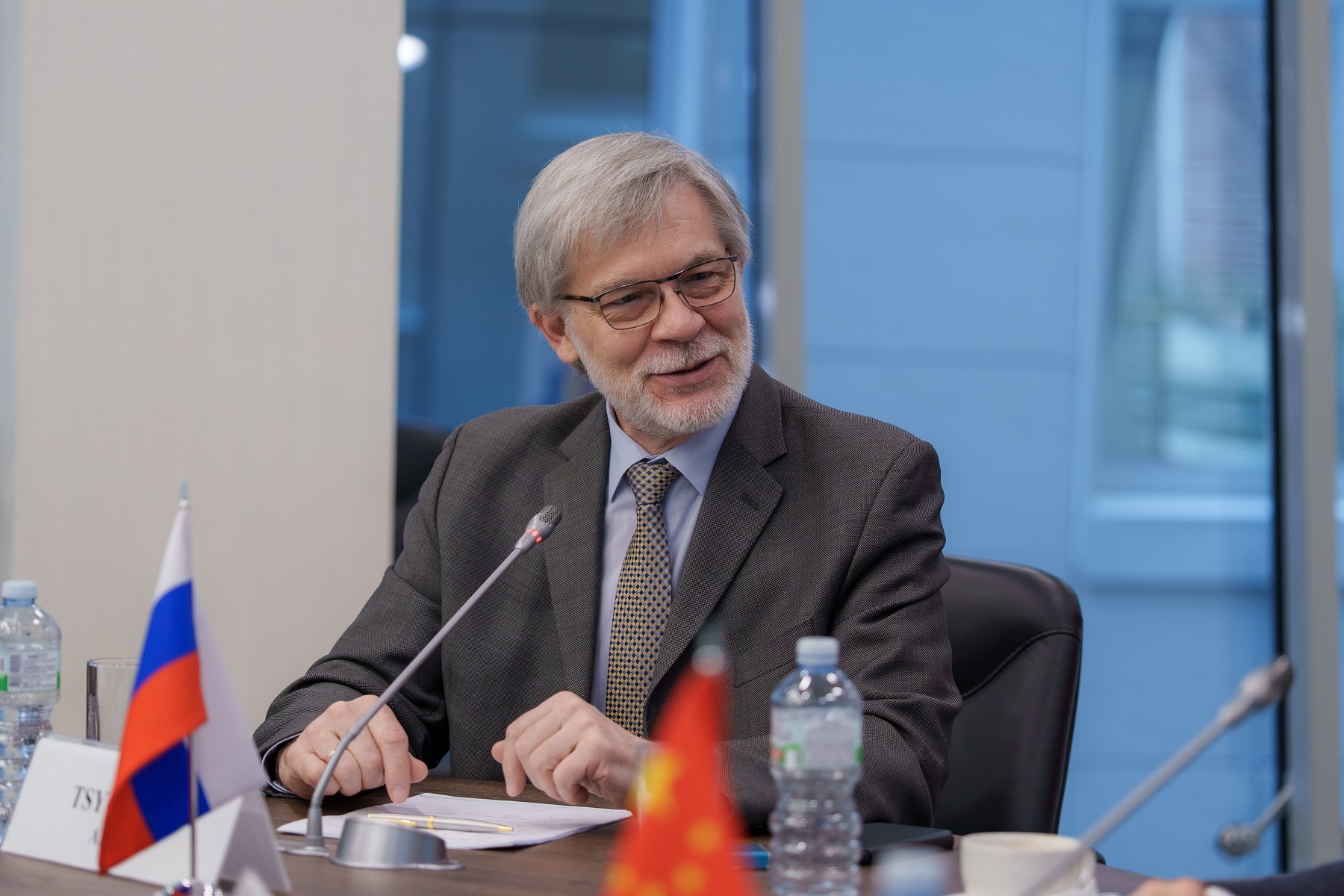
In his welcome address, Deputy Head of FAS Russia Andrey Tsyganov outlined the history of collaboration between the two countries’ regulatory bodies, which began in 1996 with the signing of an agreement between the Russian and Chinese governments on cooperation in antimonopoly policy and the fight against unfair competition. He elaborated on current areas of partnership, including the exchange of best practices, coordination in cross-border markets, and joint efforts within the BRICS framework.
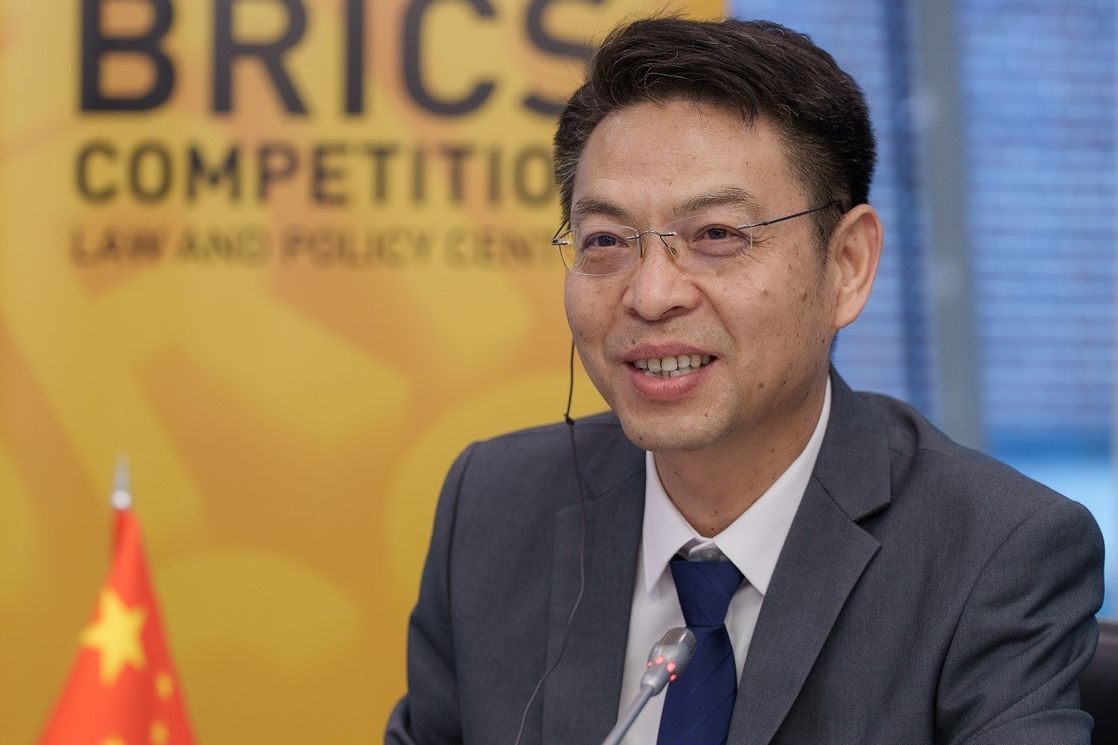
Jie Fang, Deputy Director General of CPAC, gave an overview of the centre’s structure and operations, as well as the results of China’s antimonopoly regulator’s work in 2024. During his presentation, he proposed three avenues for further cooperation between the BRICS Centre and CPAC:
— Enhancing the cooperation mechanism by establishing a clear direction and shared understanding of common goals, including strengthening CPAC’s role within BRICS with the support of Russian partners.
— Focusing on areas of mutual interest, such as antimonopoly supervision and enforcement in key economic sectors, mechanisms for monitoring internet platforms, tackling unfair competition in the digital sphere, and protecting trade secrets.
— Developing new modes of cooperation, including the mutual provision of expert guidance and compliance support for businesses operating in Russia and China, as well as sharing recent research findings and improving the effectiveness of reciprocal training initiatives.
During his address, Changqing Wang, Director of the Office and Personnel Division at CPAC, highlighted the crucial role of human capital in antimonopoly research. He emphasised the importance of education and the need to train highly qualified professionals in this field.
Liwei Xie, Director of the Institute of Platform Economy at CPAC, spoke about the development and regulation of the platform economy in China. According to her, China’s platform economy is a complex, multi-tiered system in which e-commerce platforms such as Alibaba, JD.com, and Pinduoduo form a comprehensive matrix encompassing a wide range of business models, including B2C, C2C, and B2B. Meanwhile, short video entertainment platforms like Douyin and Kuaishou have created a full production chain—from content creation to intellectual property incubation.
In recent years, Chinese authorities have actively addressed violations such as abuse of market dominance, false advertising, counterfeit product sales, and price manipulation. The regulator has conducted several high-profile antimonopoly investigations into companies such as Alibaba, Meituan, and CNKI (China National Knowledge Infrastructure). Additionally, scrutiny over mergers in the platform economy has been intensified, and misleading online advertising is being curbed. According to the regulator, these efforts have already borne fruit: major market players have become more compliant, and the sector has entered a phase of ‘stable oversight.’
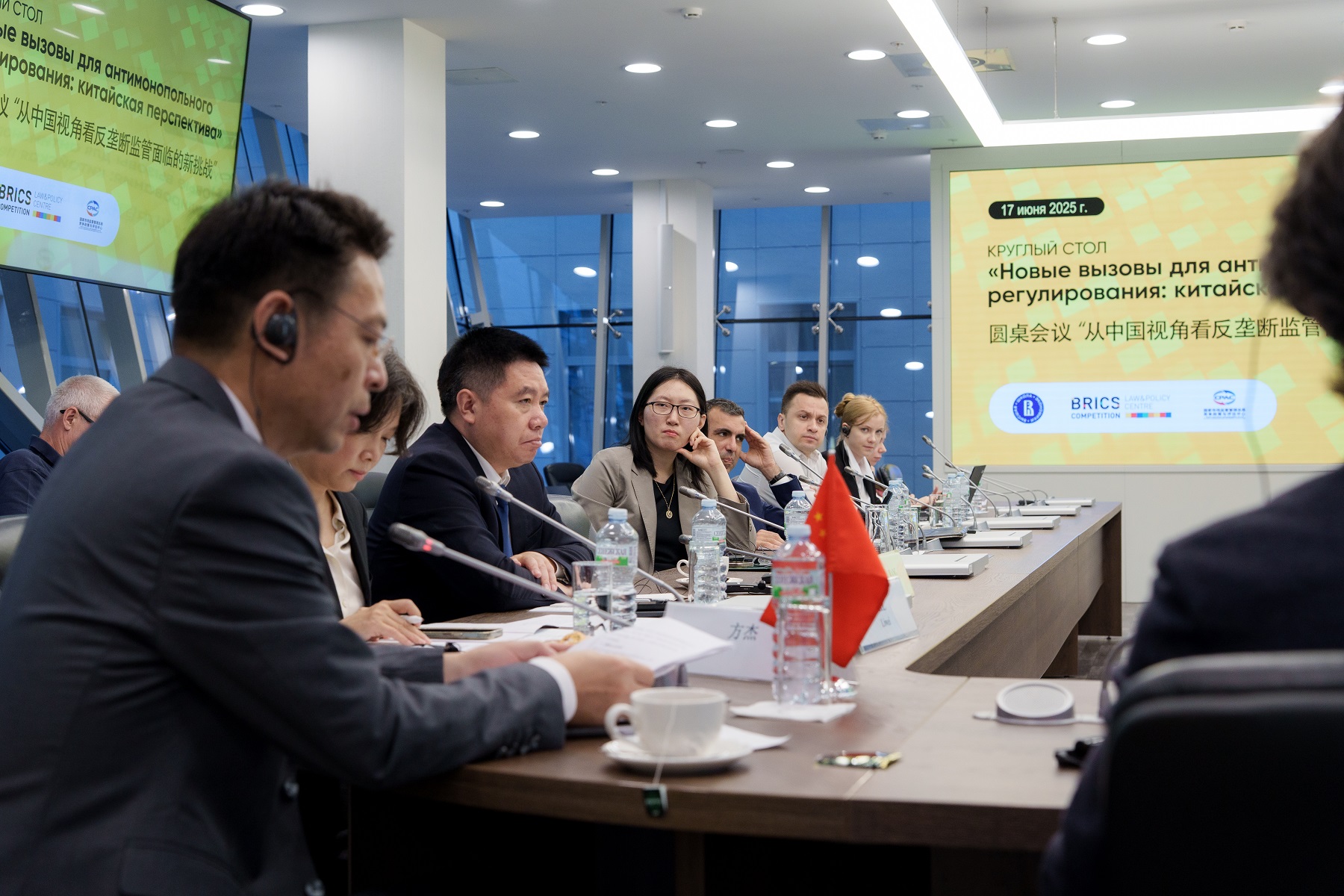
Regulation of the platform economy follows the principle: ‘the authority responsible for the offline domain also oversees the online sphere.’ SAMR is tasked with comprehensive market oversight, covering online trade in goods and services, antimonopoly activities, and the fight against unfair competition in the digital environment.
The Russian experience in regulating digital markets was presented by Irina Nikolaycheva, Head of the Department for Regulation of Communications and Information Technology at FAS Russia. She noted that the agency is currently developing systematic approaches to analysing and regulating digital markets, with particular attention to phenomena such as network effects. Experience has shown that the most effective strategy is a comprehensive one that combines legislative measures with self-regulation.
Olga Korolkova, Assistant to the Member of the Board (Minister) for Competition and Antimonopoly Regulation of the Eurasian Economic Commission (EEC), shared insights into supranational regulation. As part of its strategic development priorities through 2025, the commission has drafted an agreement on e-commerce within the Eurasian Economic Union (EAEU). This agreement outlines requirements for professional market participants, including standards for platforms and advertising content, and addresses issues of consumer rights protection, technical regulation, safety, and customs clearance of digital goods.
Summing up the meeting, Alexey Ivanov emphasised the unique role of the antimonopoly regulator as a mediator and facilitator that must maintain a neutral and objective stance. The key aim of its work, he stated, is to ensure balanced and sustainable market development, where the growth and dominance of certain players is not allowed to come at the expense of others.
Speaking about the role of BRICS, Alexey Ivanov stressed that the bloc functions as a ‘network of networks’—a layer above regional groupings that serves as a coordinating mechanism among different regional structures. It also helps member countries to develop a harmonised antimonopoly policy.
See also:
HSE Participates in Conference on International Exchange of Professionals in China
From October 21 to 24, 2025, the 23rd Conference on International Exchange of Professionals took place in Shanghai and Beijing, bringing together more than 7,000 scientists and experts from around the world. HSE University was represented by Ivan Arzhantsev, Dean of the Faculty of Computer Science, and Vasily Gromov, Head of the Laboratory for Semantic Analysis of the Centre for Language and Semantic Technologies.
‘Regulators Must Understand That Absolute Predictability is Unattainable’
On October 10–11, 2025, the BRICS Competition Law and Policy Centre at HSE University (the BRICS Centre) hosted a two-day international seminar, ‘Platform Economy: Competition Law and the Market Power of Digital Platforms,’ in Tashkent, Uzbekistan. The event brought together competition authorities from BRICS+ nations and leading antitrust experts from around the world.
Achieving Financial Independence: Experts Discuss Development of BRICS National Currency Settlements
How can BRICS countries move away from the dollar in international settlements, and what can they do to advance this goal today? These questions were discussed by experts during a round table at HSE University. The event was organised by the Multilateral Strategic Projects Office together with the HSE Faculty of World Economy and International Affairs as part of HSE’s activities within the BRICS Network University and the Joint Basic Research Projects ‘International Academic Cooperation of HSE University.’
‘It Was Interesting to See How Our Chinese Colleagues Work’: HSE Researchers Take Part in Hefei Summer School
This summer, Diana Sukhoverkhova, Daria Mazur, and David Kagramanyan, research assistants at the MIEM HSE Laboratory for Computational Physics, spent five weeks in China. At the Future Scientist Exchange Program (FuSEP) summer school in Hefei, they worked in new fields of science together with their Chinese colleagues. HSE's promising scientists spoke to the HSE News Service about their intense and productive time in China.
Works of HSE Art and Design Students Presented at Pingyao International Photography Festival
On September 19, the 25th Pingyao International Photography Festival (PIP) opened in Pingyao, Shanxi Province, China. The exhibition features the works of 16 students of the Faculty of Creative Industries at the HSE Art and Design School, selected following the results of the HSE Creative Open / Photoproject international competition, which received more than 300 entries.
Experts from HSE University and BRICS Anti-Monopoly Authorities Analyse Global Grain Market
The International BRICS Competition Law and Policy Centre at HSE University presented the scientific report ‘From Fields to Futures: Competition, Financialisation, and Digitalisation in Global Grain Value Chains.’ The document was prepared as part of expert support from the BRICS Working Group on Competition Research in Food Markets. The presentation took place at the academic conference ‘Emerging Challenges of Competition Law and Policy in the BRICS and Beyond’ on September 12, 2025, in Cape Town (South Africa), which the BRICS Centre organised together with the University of Cape Town on the sidelines of the 9th BRICS International Competition Conference.
‘I Wish Summer Were Quarterly’
Practicing and teaching yoga, chilling in Moscow parks, writing academic papers, travelling around Russia, and volunteering—these are only a few of the things HSE international students have tried over their summer break. Now, as they are getting back to studies, the students reflect on their summer experiences in academic work, professional development, travel, and leisure.
HSE Launches Training for Future BRICS Experts
From August 20–23, 2025, the Artek International Children’s Centre (Crimea, Russia) hosted an off-site session of HSE University’s educational and outreach project BRICS International School: New Generation. The school was the first event to take place under the cooperation agreement signed this year between HSE University and Artek.
Ringing in the New Term
On September 1, campuses across Russia ring in the new academic year with the traditional ‘first bell’—flowers for teachers and welcomes for first‑years—while international students at HSE University share how studies begin in their home countries, from Ghana’s Akwaba week to China’s student club fair, the Democratic Republic of the Congo’s blue-and-white uniforms, and India’s Teachers’ Day.
HSE and China’s Top Universities to Launch Large-Scale Research and Education Projects
As part of the official visit of Russian President Vladimir Putin to the People’s Republic of China, the HSE delegation led by Rector Nikita Anisimov concluded new cooperation agreements with major Chinese universities. The agreements are designed to expand bilateral partnerships in education, science, and cultural exchange.


